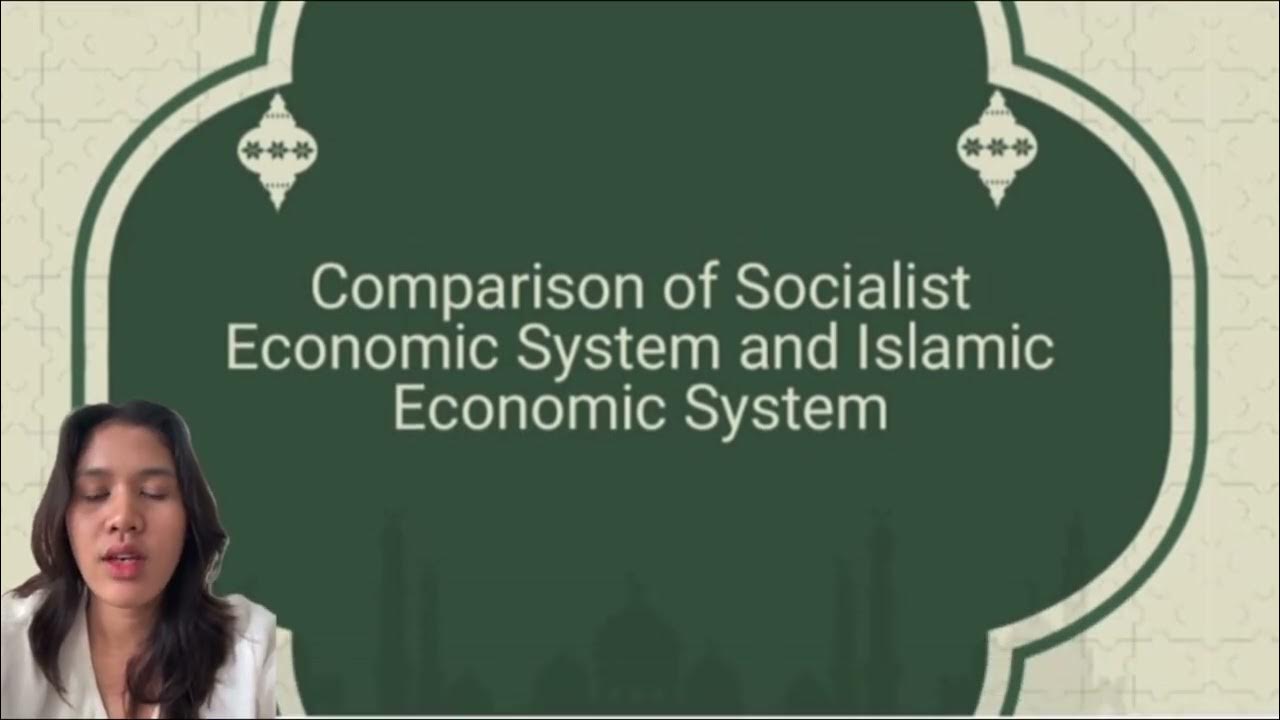IMU 253 CHAP 8 PART 2
Summary
TLDRThis video explores the role of government intervention in economic systems, focusing on the Islamic perspective. It explains how government action is vital for ensuring social welfare, addressing macroeconomic issues, and solving socio-economic problems. The Islamic state’s responsibilities include eradicating poverty, ensuring social justice, promoting stability, and defending national sovereignty. The video also discusses various legislation in Malaysia aimed at consumer protection, such as the Price Control Act and Consumer Protection Act, which regulate goods, services, and pricing to safeguard public interests.
Takeaways
- 😀 Government intervention is essential for ensuring human welfare through efficient production and equitable distribution of goods and services.
- 😀 Islamic economic systems emphasize the role of the government in public policy, guided by Sharia principles, to protect the welfare of citizens.
- 😀 Siasah (policy) in Islamic economics ensures that government decisions are made according to Allah's commandments and focus on the people's benefit.
- 😀 Four main objectives of government intervention in the market include maximizing social welfare, solving macroeconomic issues, addressing socio-economic challenges, and resolving other national issues.
- 😀 Social welfare can be compromised by monopolistic firms, and government intervention through regulation is necessary to prevent unfair market practices like cartels.
- 😀 Governments intervene in the economy to redistribute wealth, address poverty, and ensure social justice by taxing and providing welfare programs.
- 😀 Economic crises, such as recessions and inflation, demand government action through fiscal and monetary policies to mitigate their impact on citizens.
- 😀 Governments may promote socio-economic equality by addressing issues like discrimination, gender inequality, and social disunity.
- 😀 National unity, advancement, and the protection of sovereignty are additional goals of government intervention, including the defense of the nation.
- 😀 The essential functions of an Islamic government include eradicating poverty, ensuring full employment, promoting economic stability, maintaining law and order, and fostering equitable income distribution.
- 😀 In Malaysia, several consumer protection laws, including the Price Control and Anti-Profiteering Act and Consumer Protection Act, are in place to safeguard the interests of consumers and regulate essential goods.
Q & A
What is the main focus of economic systems in terms of human welfare?
-The main focus of economic systems is on how to efficiently produce goods and services and distribute them equitably in order to achieve human welfare.
How does the Islamic economic system approach government intervention?
-In the Islamic economic system, the government is integral and plays a key role in implementing policies based on Sharia law (Siasa) to ensure the welfare of its citizens, following Allah's commandments and focusing on the public benefit.
What are the four primary objectives of government intervention in the market?
-The four primary objectives are: 1) Maximizing social welfare, 2) Solving macroeconomic issues, 3) Addressing socio-economic problems, and 4) Achieving other national objectives such as promoting national unity or sovereignty.
What does maximizing social welfare involve in the context of government intervention?
-Maximizing social welfare involves addressing wealth and income disparities, preventing monopolistic behaviors, and ensuring fair access to essential goods and services, often through regulations and welfare programs.
How does government intervention help solve macroeconomic issues?
-Governments intervene to minimize the negative effects of economic crises like inflation and recession, using fiscal and monetary policies to stabilize the economy and support citizens.
What socio-economic issues may prompt government intervention?
-Socio-economic issues that may require government intervention include discrimination based on gender, race, or religion, as well as social disunity, crime, and promoting policies for equality, such as gender equality in the workplace.
Why might a government intervene in the market to promote national unity or pride?
-A government may intervene to foster national unity, promote national pride, and safeguard national sovereignty, ensuring the overall stability and advancement of the country.
What are the key functions of government intervention in an Islamic state?
-The key functions include eradicating poverty, ensuring full employment, promoting economic growth, maintaining stability in the value of money, ensuring law and order, providing social justice, and defending national interests.
What are some consumer protection laws enacted by the Malaysian government?
-The Malaysian government has enacted several laws to protect consumers, such as the Price Control and Anti-Profiteering Act (2011), the Consumer Protection Act (1999), the Weights and Measures Act (1972), and the Control of Supplies Act (1961).
How does the Price Control and Anti-Profiteering Act (2011) protect consumers?
-This act enables the government to regulate the prices of essential goods and services, preventing excessive profit-taking and ensuring that goods remain affordable for consumers.
What role does the Consumer Affairs Board play in consumer protection in Malaysia?
-The Consumer Affairs Board is responsible for performing functions assigned by the Consumer Protection Act, such as ensuring consumer rights, conducting research on consumer issues, and educating the public on consumer matters.
Outlines

このセクションは有料ユーザー限定です。 アクセスするには、アップグレードをお願いします。
今すぐアップグレードMindmap

このセクションは有料ユーザー限定です。 アクセスするには、アップグレードをお願いします。
今すぐアップグレードKeywords

このセクションは有料ユーザー限定です。 アクセスするには、アップグレードをお願いします。
今すぐアップグレードHighlights

このセクションは有料ユーザー限定です。 アクセスするには、アップグレードをお願いします。
今すぐアップグレードTranscripts

このセクションは有料ユーザー限定です。 アクセスするには、アップグレードをお願いします。
今すぐアップグレード関連動画をさらに表示

Ekonomi Publik Islam || Konsep & Ruang Lingkup Ekonomi Publik

How Islamic Fiscal & Monetary Policies Build a Fairer Economy – Islamic Economics

Pemikiran Ekonomi Islam Periode Pertama dan Kedua

Difference between islamic economic system and sosialist economic system

1. Penetapan Kepemilikan : a. Larangan monopoli b. Pengharaman riba

Sistem Ekonomi Islam (Part 4 of 4) bersama Drs. Ec. H. Suherman Rosyidi, M.Com.
5.0 / 5 (0 votes)
